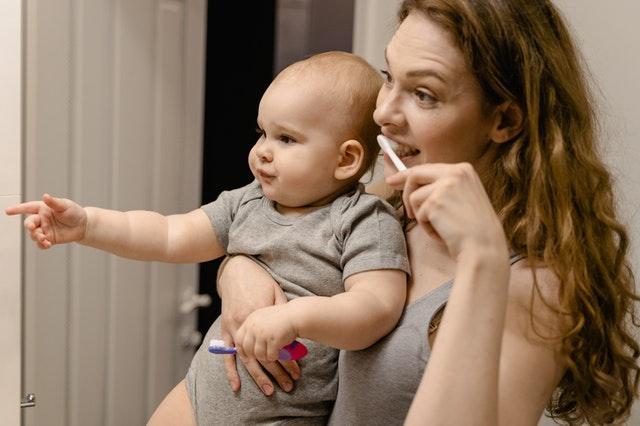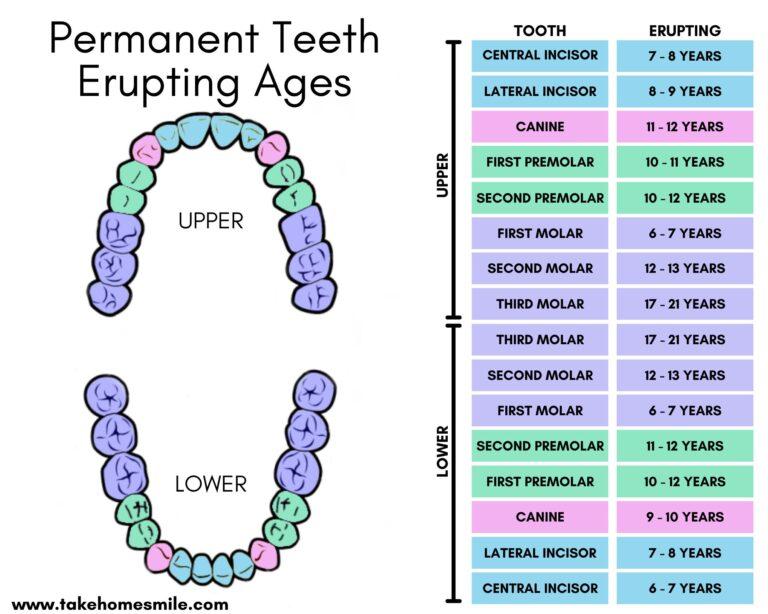


Teeth erupting happens in both kids and adults. While the mechanism of how teeth push into the mouth is unknown, we do know the time range of when it will happen.
This article will guide you through what you can expect with erupting teeth using an easy to understand chart.

All teeth start out as a single tooth bud. A tooth bud is an undeveloped tooth consisting of a collection of cells separating into three forming different organs. Here are some easy to understand steps of erupting teeth:
The start of primary teeth erupting will start around 8 months and end around 33 months. Baby teeth have smaller roots and thinner enamel, which make them more prone to issues.
It’s important to establish a good oral hygiene routine and dental visits as soon as the first tooth comes in. For more tips on keeping baby teeth strong, check out our Children’s Oral Health article.
Common signs and symptoms of baby teeth erupting are:

Here is the corresponding chart showing the ages that erupting teeth take place for the permanent adult teeth.

For baby teeth, teething is a slow, sensitive process that is easier for some babies but more painful for others. There are a few things you can do to soothe the symptoms caused by teeth erupting:
For the permanent teeth, cold compresses, pain relievers, good oral hygiene, and a healthy diet are ways that you can heal after your teeth erupted as well. Always make sure to consult with your dentist about the best ways to deal with pain after your teeth erupted.
The best possible way for you to both prepare for erupting teeth and the aftercare for when your teeth erupted is to practice good oral hygiene. The healthier your mouth is overall, the higher the likelihood that you won’t experience any issues.
Additionally, it’s important to keep your dentist up-to-date with any pain you’re experiencing, both before your teeth erupt and after your teeth erupted. They will be best equipped to help you get some pain relief.
Learn more on how to support your child’s growing smile with our articles below.
While the specific mechanism of how the teeth erupt is unknown, we do know how it’s stimulated. The eruption depends on available space in the mouth, the formation. of the crown to the root, and the periodontal ligaments around the tooth allowing it to push through.
When teeth are erupting, they show several obvious signs. Teeth erupting will create pressure in the bone and red inflammation in the gums.
On average, it takes around 8-10 days for a tooth to fully push through the gums. Teeth erupting may take longer if the wrong position or if there isn’t enough room for the tooth.
Visit the Take Home Smile store for fun printables that can help encourage oral hygiene with your children and pediatric patients!